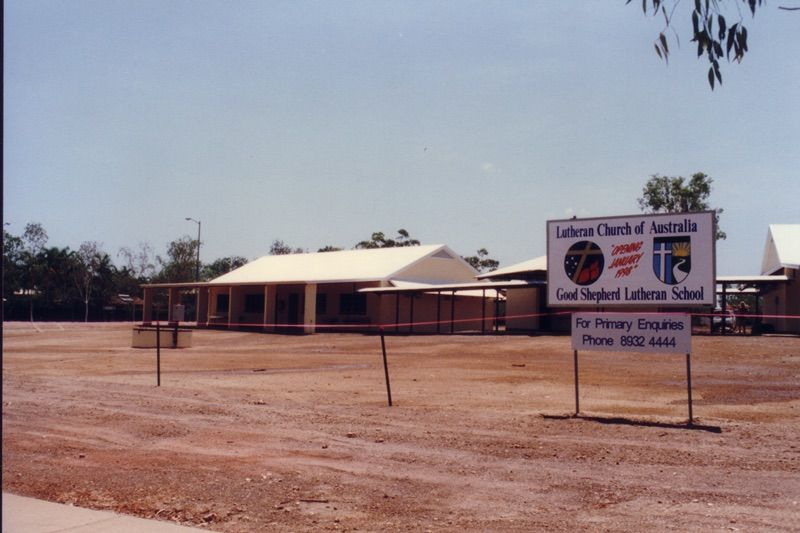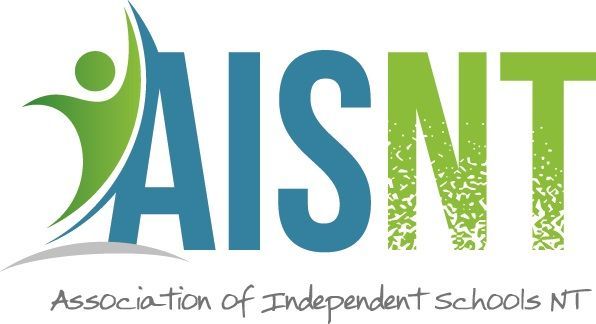Confidence – A Most Attractive Painting on the Wall
I like to experiment with prioritising what should be given one of the prime spots on the “must do” ladder for a school. A favourite one I often think about is if I could only teach 5 things, what would they be.
Another one to roll around in the concrete mixer of the mind is what should take the top spots in a school’s culture? It is to this to which I turned my mind over the past week and the winner for me at the conclusion of this time of reflection was the quality of “confidence.”
Confidence, as a human characteristic, is one of the really essential ingredients in a school and indeed in life. If it was illustrated as a classy painting, it would be one of the most attractive paintings hanging on a school wall, well in view for everyone to see whether they be members of the school community or visitors. I guess there are many ways a painting can project confidence but the painting should be of particular value if it projects something the school really believes in. Clearly confidence will be lacking in many members of the school community but the painting, without equivocation, projects the message that this is an acceptable characteristic and something for members of the school community to aspire to, develop and support. There is no question that the development of this is a challenging and difficult task.
There was a time when many schools had little concern about confidence and the success of a school was rather measured by the level of control that it exercised. A successful teacher was seen as one who had great control in the class and student confidence was given little consideration. As the Principal walked past the school “fish bowls” and all seemed orderly, then all was ok in the school. This was an easy mission and if the Principal took action in a class where disorder was underway, then a Principal’s responsibility had been discharged.
Now, obviously this view of a school is very simplistic. However, the point I’m making relates to what is seen as a priority. If genuine chaos reigns in a class, then there is likely to be a problem and nothing constructive will be achieved and certainly not confidence other than for the leaders of the chaos. The confidence of such rebels is definitely misplaced and destructive.
In a school confidence is not only an issue in the classroom, but also in all other situations for students, amongst the staff, amongst members of the parent body and certainly for the Principal and other leaders of the school. In all areas, lack of confidence is not helpful and the “best” is not generated by it. There was a time during my existence when a bad result was rewarded with a punishment, with the intention that this would be an incentive for future success. There was little thought that the student was doing their best and not capable, at that time, of doing better.
Some parents fail to embrace who their children really are. Even today ambitious parents may come to the school and express their disappointment in their child receiving “Cs” and not “As”. Sure some students may be receiving such marks because they lacked application or because of poor teaching. However I was always confounded by parents who didn’t have any idea where their child’s gifts lay. Their child may not be capable of an “A” and they had no appreciation of this. They also didn’t understand that “C” is classed as average and the majority of the community are usually made up of average people who actually cope quite well in life and in fact can be very successful.
I guess confidence is promoted through encouragement and the development of self-understanding and belief. As a youth I was under the misapprehension that the school run around the Botanic Gardens, should be done in 14 minutes, because the school’s champion 1500 meter runner could do it in that time and other capable runners were not far behind. I was not a “gun” long distance runner and no matter how hard I tried and trained, 17 minutes was my best time! It was some years later, after what I perceived as failure, that I accepted that 17 minutes was my deal.
Though almost 6 foot I had short legs and a pulse rate that didn’t support fast, long distance running. By the time I had accepted that and was OK with it and it had ceased to damage my confidence, I rather found confidence in celebrating what I was actually good at and for which I received positive encouragement. To some extent the journey of life is about revealing over time what you are good at and accepting what you are perhaps not naturally good at but not letting your confidence be dented. Surely, ”Id Est Quod Id Est” applies - “It is what it is”.
Teaching we appreciate is an art which comes very naturally to some but to others can be learnt through wise guidance and conscientious work. What is important is that the teacher becomes confident with their teaching and their role as a teacher and encouragement plays a big part in this. It doesn’t happen overnight, as we know, but the pupils can sense whether a teacher is confident and capable and if they are not, the class can become difficult. Sadly, in my experience, some people do not have the capacity to be an effective teacher. Whether they can develop the capacity over time - who knows?
As Principals we all, I’m sure, know such situations. Difference is to be celebrated, and I was never shy at sharing with students that, no matter how hard I tried I was never going to be a “gun” mathematician - my brain doesn’t work like that. X power of 3+Ypower of 3+Zpower of 3=K is not in my skill set and never will be. Nevertheless I was an OK mathematician. However I enjoy playing the guitar which I can do quite well. It is so important that teachers know whom they are and are as confident about that as they are about their teaching.
One of the best teachers I ever worked with was multi-talented. He loved teaching any year level and was able to teach year 12 physics, hi-level maths, economics, computing and probably more. He held a PHD in science and could engage in scientific discussion on any level. It was such a treat to watch him work with students demonstrating safely the remarkable power of a telescope during an eclipse. Students were naturally drawn to him and loved learning from the “master.” But at the start of the year he was prepared to share with students the fact that despite all his achievements he was dyslexic. That honesty had a profoundly positive effective on his students. What a teacher!
I feel that confidence is something which the school should encourage and include in its program in whatever way is possible. I watched a school musical recently and the many students who participated, whether as stars, chorus or backstage etc. would have developed confidence through that experience.
I watch my grandchildren play sport on Saturday and once again see confidence growing as the result of belonging constructively to a team, learning to relate to others, being accepting of losing and week by week developing their skills. I have watched youngsters learning to play the guitar and seen how quickly confidence grows through the belief “I can do it.”
So what are somethings which schools can do to enhance confidence?
Ongoing, in any way possible, present to the school community the importance of confidence. Reward students, give students positive comments when they deserve them but don’t be “stingy” about these; be personally interested in students. Encouragement is one of the golden tools teachers carry in their kit bag.
A school must do the best they can to provide sufficient opportunities for students to shine. I’ve known students who have struggled with a range of subjects but have really shone at art. Sport also gives this opportunity, but there should be a variety of sports giving the chance for students to shine. I know a teacher who introduced chess into a sports day, trying to encourage and profile those with these skills. School Camps are ideal confidence builders. Each year as students prepare to go out in the bush for their 10 day adventure experience, some will complain they are in a group without their friends. Encouraging them to accept this is important and invariably, when they return, they will have made new friends. Students whom they thought were not their type now shone. Without this opportunity this would not have happened.
Parents have a tough job as we all know. However, I was always really disappointed when certain parents allowed their children to miss experiences like school camps, sports days etc. I guess to them they were acceding to their child’s wishes for a day off and that was good - I guess I beg to differ as their child had missed opportunities from which they may have developed confidence.
Back to the great educator Kurt Hahn. Hahn was a major believer in impelling a student into experience. He ran boarding schools so it was easier to do this. To him it was so important that students participated in a whole variety of experiences because he knew that this would enhance their confidence.
Hahn used to say the Moray Firth, the local estuary, was his best school master. Students sailed small yachts, then larger cutters and eventually the 24meter sailing vessel on which they undertook extended, adventurous, coastal journeys. He believed that enhancing confidence in one area would spin off into other areas. I have seen this happen so often. A student may say that they don’t want to address a class or assembly because they are fearful of failure. Acceding to this achieves nothing. If they take on this challenge, and often with support, their confidence rises noticeably. It is then hard to get the microphone from them - Great!
It is worthwhile engaging staff in conversations about developing confidence in Students. The school should adopt a “watching brief” about this because it is important and one conversation may soon be forgotten. Probably the most important actions a teacher can take in developing confidence is inspiring students to have experiences in activities in which they have a good chance of success, provide ongoing encouragement to acknowledge progress and finally success. It is essential that a Principal models this and ongoing remind staff to do this for it will have a positive effect on the culture of the school. Confidence makes so much difference to an individual and encouraging this in students is not hard to do but it reaps very important rewards.
Achievement (even small) + Encouragement = Increase in Confidence.
Quotes which might be helpful.
“The way to get started is to quit talking and begin doing.”
- Walt Disney
“Be yourself, everyone else is already taken.”
- Oscar Wilde
“You may say I’m a dreamer, but I’m not the only one. I hope someday you’ll join us. And the world will live as one.”
- John Lennon
“The future belongs to those who believe in the beauty of their dreams”
- Eleanor Roosevelt
“I have learned over the years that when one’s mind is made up, this diminishes fear”
- Rosa Parks
“I alone cannot change the world, but I can cast a stone across the water to create many ripples.”
- Mother Teresa
Chris Tudor
Principal Liaison & AISNT Historian



